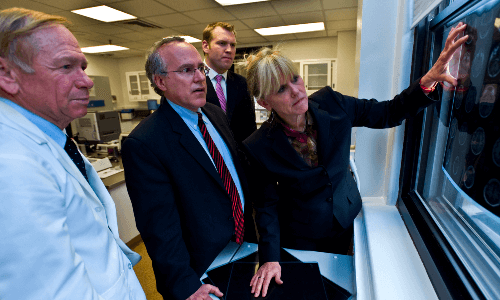Stan Mikita was a hockey icon and earned a spot in the Hockey Hall of Fame for his incredible career with the Chicago Blackhawks. Outside of hockey, Mikita helped start the Special Olympics in Chicago, founded the American Hearing Impaired Hockey Association (AIHA) with his uncle, and routinely donated his time, energy, and celebrity status to causes in his community. Mikita began having issues with his memory and his mental facilities as he got older and eventually was diagnosed with dementia. Mikita told his family while he was alive that he wanted to donate his brain to the UNITE Brain Bank so that they could advance research on post-concussion syndrome (PCS). He was diagnosed with CTE after his death in 2018 at age 78. The Mikita family shares his story to honor his lifelong legacy of giving back to others.
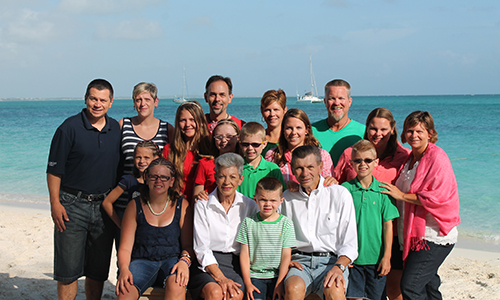
It is important to understand the manner in which our father lived his life: his compassion for others, his ability to meet a stranger and make a friend, and his devotion to family and friends defined him. Our father was born in Sokolce in 1940, then a part of communist Czechoslovakia. At the age of 8, his aunt and uncle visited to ask if they could adopt Stan and raise him in Canada. Stan’s mother, Amelia, and father, George, refused. Then came the miscommunication that would change the course of Stan’s life: the hungry 8-year-old came in to ask for a snack. When Stan was sent back to bed without his snack, he cried. His parents thought he was upset because he wanted to live in Canada, so they changed their minds and let him go. That small moment set in motion a series of events that greatly impacted our dad’s life.
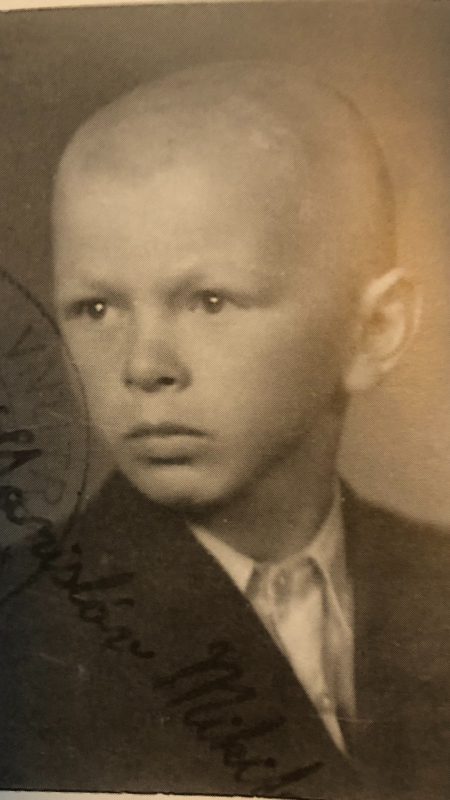
When he arrived in Canada, Stan did not speak the language. He looked different than the other kids and he was not with his “real” family. Even though he was 8 years old, he was placed in a Kindergarten classroom due to his lack of English language skills. He was bullied, he was called a DP (displaced person, a great insult), he had no friends, and in his mind, he didn’t have his family.
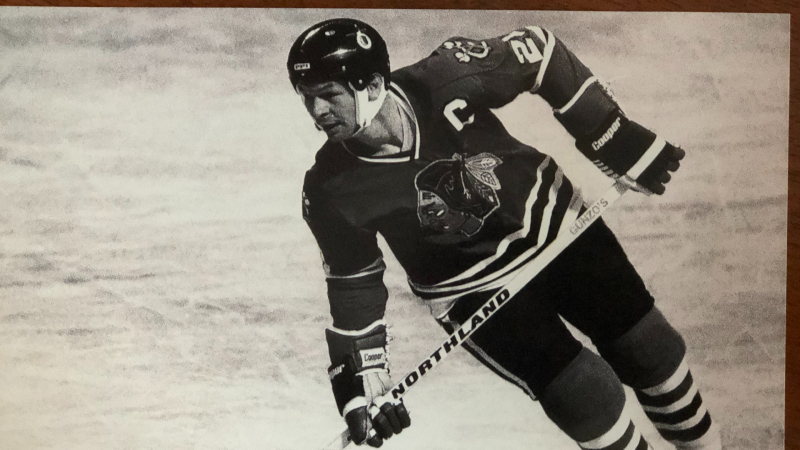
In the midst of that great loneliness, he found the game of hockey, which would go on to become a great joy of his life. While our dad’s professional hockey accomplishments were many, we are most proud of his legacy of giving back and caring for others.
Those early moments upon his arrival in Canada made a lasting and profound mark on our dad. He learned what it was like to be alone in a world full of people, and how to reach out to others who felt that way. Our dad was a husband, father, and grandfather who fiercely loved his family above all else. A friend who would always lend a hand and never missed an opportunity to pull a prank. A kid from Czechoslovakia who never forgot the sacrifices his parents made, his feelings of being different and left out or his humble beginnings. A selfless Chicagoan who felt a duty to give back. A human who saw other people with differences as simply that – people.
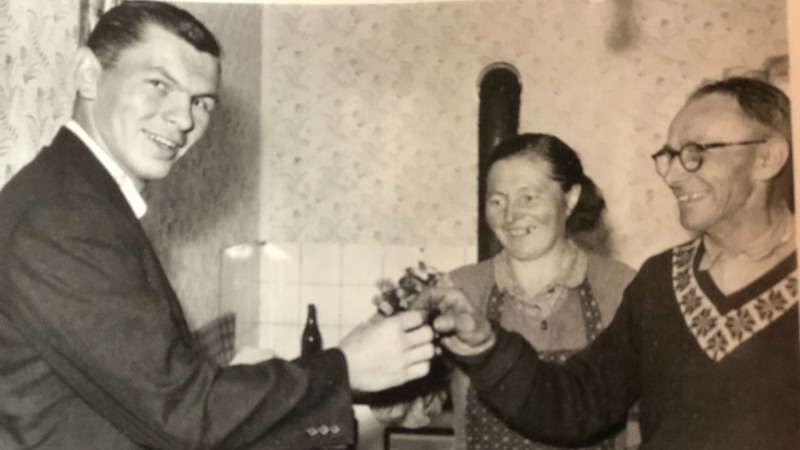
As a father, he taught us by example about acceptance, compassion and patience, often reminding us that it doesn’t cost anything to be nice to people. He stressed that everyone is equally worthy of respect and kindness; that people are more alike than they are different. Our dad would ask us if we wanted to go to a track meet or a visit a hospital with him. He never qualified these outings as doing charity work or made note that some of the participants would be mentally, physically or medically challenged. We were just going to cheer some people on. We accompanied him to be “huggers” at the Special Olympics when he helped start the program in Chicago. When our dad and Uncle Irv founded AHIHA (American Hearing Impaired Hockey Association) in 1973, we were all involved from the beginning, helping any way we could. AHIHA is still going strong, fielding the US Deaf Olympic Team. The next generation of Mikitas, the grandchildren, continue to support the program by volunteering on and off the ice. Many of our good friends are AHIHA families. On Thanksgiving we would go to Larabida Children’s Hospital to play and have lunch with the kids and their families.
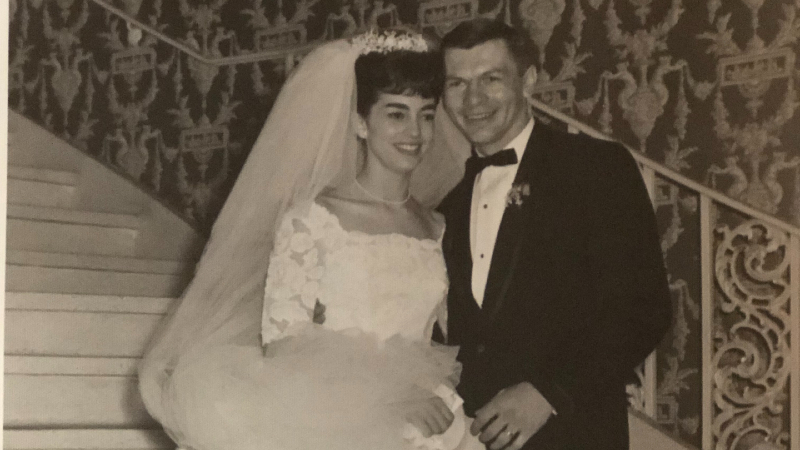
Several years ago, our father began declining mentally. Almost overnight, our mother’s partner of 52 years was mentally gone but physically still here. Our loving father and doting grandpa was suddenly confused and different from the person we knew.
This new journey was a change for all of us. As a family we decided that it was important to share news of his dementia. Our public statement was met with sorrow, understanding, compassion, love and support for both Stan and our family. We knew we were not alone in this journey, ours was just going to be a little more public than most because of Stan’s name and notoriety.
This is not a path any family foresees for a loved one, but it is, unfortunately, one that unites many of us. One amazing revelation was that once people knew that Stan was suffering with dementia, almost everyone who reached out to us had a family member or loved one fighting the same battle.
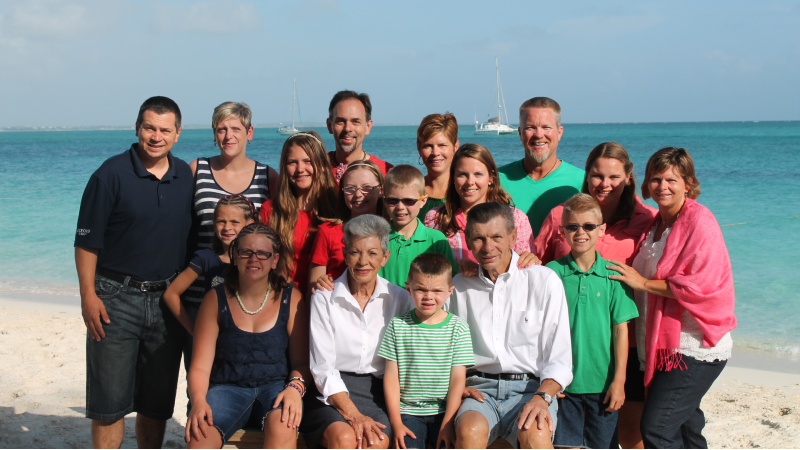
Because of the way our dad lived his life, during the end of his life, we were supported and loved by so many of the people he had touched. Friends, former teammates and rivals, kids he visited at schools and hospitals, old neighbors and strangers all reached out to offer comfort and share memories.
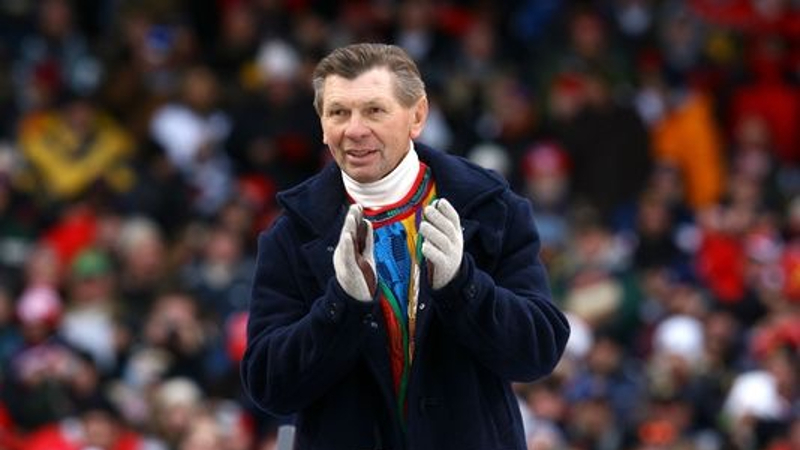
In keeping with the way he lived his life as a giver, it was our father’s idea to donate his brain to the UNITE Brain Bank upon his death. He made his wishes abundantly clear, and as he said in his book, “This is a serious issue, and I am willing to be part of a test group. While I’m alive, I will gladly cooperate with the investigation of post-concussion syndrome. It’s the least I can do.” He visited Boston in 2013 to undergo baseline testing with Dr. Stern. He knew this was not diagnostic testing and he would not be receiving any medical treatment to help his memory loss, but that this information would be able to help others in the future. He told our sister Meg after the testing, “I told them they could have my brain, but not yet, I’m still using it.”
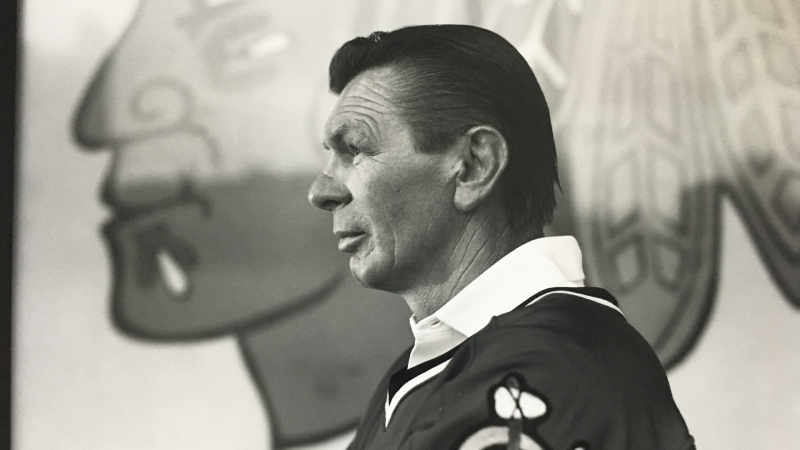
Our dad ended his book, Forever a Blackhawk with this quote, “By now, I thought for sure that I would be forgotten. Instead, I am still being remembered. How lucky can a guy be?” We were lucky to have him as a dad and friend, and we are honored to continue Stan’s wish to give back.
-The Mikita Family
Jill Mikita – wife
Meg Mikta
Scott Mikita
Jane Mikita Gneiser
Chris Mikita
